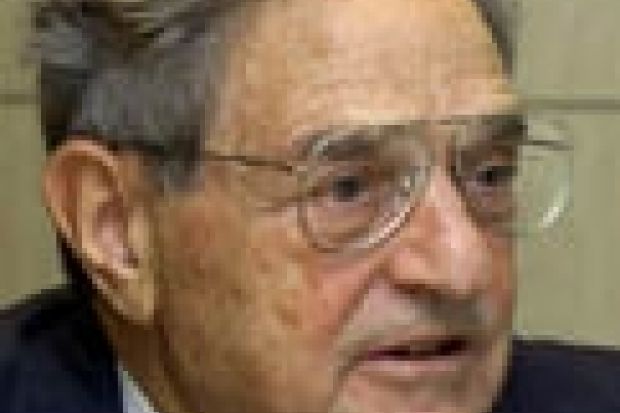Russia's leading scientists have been ordered to report all foreign contacts involving cutting-edge science and technology to their superiors.
Financier George Soros, who is in Moscow in connection with the International Fund for Assistance to Russia, of which he is president, called on the Russian scientific community to resist the registration of foreign contacts and described the regulations as a "return to the Soviet system".
He said that as an advocate of an open society and as an investor, he would not have spent his money on helping Russian science had he known what was coming.
Sergei Kovalev, one of Russia's leading human rights campaigners, revealed the regulations in a television interview. He accused the authorities of imposing Soviet-style controls on science. He said that the regulations required scholars to report foreign contacts, including their publications in foreign journals.
Dr Kovalev said the regulations were contained in a document circulated at the beginning of the year by the Presidium of the Russian Academy of Sciences to the directors of its research institutes, entitled On Plans for Measures by the Academy of Sciences to Prevent Damage Being Done to the Russian Federation.
The directive was presented as a response to several cases in which Soviet citizens have faced prosecution for passing on sensitive information to foreigners. It required institutes of the academy to make an inventory and analysis of all foreign aid and cooperation programmes relating to leading-edge technology.
The deadline for this survey, according to Dr Kovalev, was June 1. The other elements of the plan were "up and running".
In addition to reporting foreign contacts, these stipulate that the directors of research institutes must be informed in advance of plans for future joint projects and applications for foreign grants. The directors have the right to veto such plans.
At least one institute has begun to implement the rules. The television presenter showed an order from Ilya Zakharov, deputy director of the Institute for General Genetics, calling on institute staff to comply with the new requirements. No one would comment on the document at the institute, which said it was "for staff only", the presenter added.
Ultimate responsibility for the new directives is not clear. Ostensibly, it comes from the Academy Presidium. Dr Kovalev said, however, that the regulations were "in the style of current Kremlin politics", and that "this type of control is one of the aspects of the professional activities of our new president" - Vladimir Putin - who at one time was KGB supervisor at Leningrad University.
Valentina Matveyenko, one of Russia's deputy premiers, has denied all knowledge of the regulations. He said that although she respected Dr Kovalev, "he sometimes uses information which is not entirely reliable. In this case, too, his statement is groundless."
Ms Matveyenko made her denial during a conversation with Mr Soros during his Moscow visit. Mr Soros, who has given more than $100 million to help Russian science, said that if the the report were true, the situation was "very dangerous".
The regulations, he said, would "damage Russian science". "It looks like an order which might have emerged in the depths of the Federal Security Service (the successor to the KGB)."
So far, there seems to have been no overt reaction from the Russian academic community. Although the inventory required by the regulations had to be carried out over the past few months, the requirements about foreign contacts do not appear to have been publicised among scholars generally.
At least one British academic has encountered the regulations in the past week - in a field remote from cutting-edge technology or security issues - in a conversation with a Russian colleague about future collaboration.
The seriousness of the threat to security posed by academic activities is far from clear. The Russian word nauka covers not only the natural sciences but also the social sciences and the humanities and the Academy of Science has institutes in all these fields.
On the same day Dr Kovalev revealed the directive, the trial resumed in Kaluga of Igor Sutyagin, a head of department at the academy's Institute for United States and Canadian Studies, who is charged with espionage and treason. The media is barred from court. Professor Sutyagin's lawyers say his defence is based on the fact that the details on Russian armaments he is alleged to have passed on come from open sources, including the Russian army newspaper Krasnaya Zvezda.
